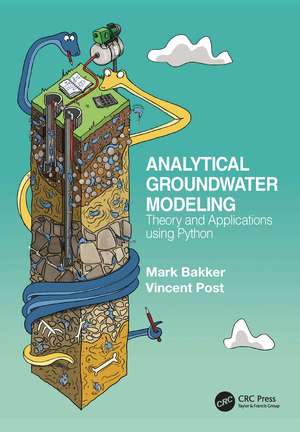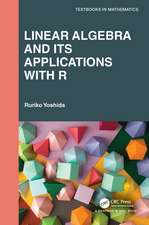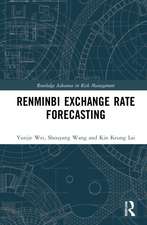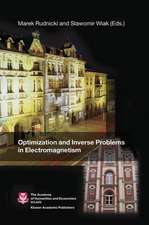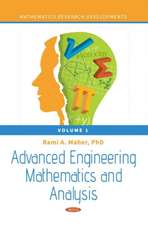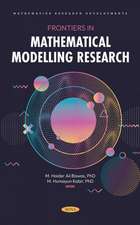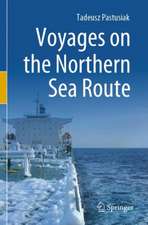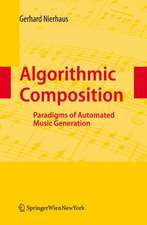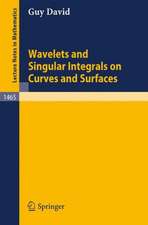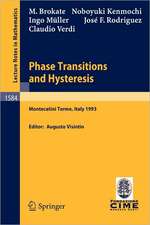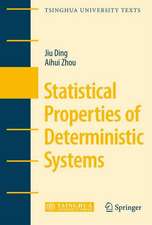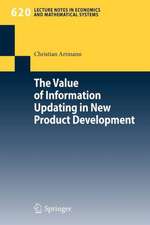Analytical Groundwater Modeling: Theory and Applications using Python
Autor Mark Bakker, Vincent Posten Limba Engleză Hardback – 30 iun 2022
Application of Python allows for compact and readable code, and quick visualization of the solutions. Python scripts are provided to reproduce all results. The scripts are also available online so that they can be altered to meet site-specific conditions. This book is intended both as training material for the next generation of university students and as a useful resource for practitioners. A primer is included for those who are new to Python or as a refresher for existing users.
| Toate formatele și edițiile | Preț | Express |
|---|---|---|
| Paperback (1) | 296.88 lei 3-5 săpt. | +24.58 lei 7-13 zile |
| CRC Press – 30 iun 2022 | 296.88 lei 3-5 săpt. | +24.58 lei 7-13 zile |
| Hardback (1) | 703.09 lei 6-8 săpt. | |
| CRC Press – 30 iun 2022 | 703.09 lei 6-8 săpt. |
Preț: 703.09 lei
Preț vechi: 857.43 lei
-18% Nou
Puncte Express: 1055
Preț estimativ în valută:
134.54€ • 146.60$ • 113.37£
134.54€ • 146.60$ • 113.37£
Carte tipărită la comandă
Livrare economică 23 aprilie-07 mai
Preluare comenzi: 021 569.72.76
Specificații
ISBN-13: 9781138605633
ISBN-10: 1138605638
Pagini: 242
Ilustrații: 298
Dimensiuni: 178 x 254 x 14 mm
Greutate: 0.52 kg
Ediția:1
Editura: CRC Press
Colecția CRC Press
ISBN-10: 1138605638
Pagini: 242
Ilustrații: 298
Dimensiuni: 178 x 254 x 14 mm
Greutate: 0.52 kg
Ediția:1
Editura: CRC Press
Colecția CRC Press
Public țintă
Postgraduate, Professional, and UndergraduateCuprins
0. Basics of Groundwater Flow. 1. Steady One-dimensional Flow with Constant Transmissivity. 2. Steady One-dimensional Semi-confined Flow. 3. Steady One-dimensional Unconfined Flow with Variable Saturated Thickness. 4. Steady One-dimensional Flow in Coastal Aquifers. 5. Transient One-dimensional Flow. 6. Steady Two-dimensional Flow to Wells. 7. Steady Two-dimensional Flow to Wells in Uniform Background Flow. 8. Analytic Element Modeling of Steady Two-dimensional Flow. 9. Transient Two-dimensional Flow. 10. Steady Two-dimensional Flow in the Vertical Plane. 11. Appendix - Python Primer
Notă biografică
Mark Bakker is a groundwater engineer and a professor at the faculty of Civil Engineering and Geosciences of the Delft University of Technology. He has taught groundwater and Python classes for more than two decades and is the originator and co-developer of many Python-based open-source modeling tools, including Timml, Ttim, Pastas, and Flopy.
Vincent Post is a hydrogeologist with research interests in coastal hydrogeology and groundwater quality. After a career in academia and research he founded Edinsi Groundwater in 2021. Python has become indispensable in his everyday professional life, and he actively promotes its use in hydrogeology by teaching courses and developing Python-based tools.
Vincent Post is a hydrogeologist with research interests in coastal hydrogeology and groundwater quality. After a career in academia and research he founded Edinsi Groundwater in 2021. Python has become indispensable in his everyday professional life, and he actively promotes its use in hydrogeology by teaching courses and developing Python-based tools.
Recenzii
'This is a fantastic addition to the analytical solutions and analytic element modeling canon with a modern approach to programming with Python. I hope readers will use it to learn and explore groundwater theory, and to up their game on making simple reality checks of complex systems to improve all groundwater modeling.'
'The authors do an excellent job of describing practically important calculations, like determining the critical flowrate at which a pumped well starts to induce flow from a nearby river.' - Michael Fienen, Groundwater - NGWA, Book Review, 7 September 2022
'The authors do an excellent job of describing practically important calculations, like determining the critical flowrate at which a pumped well starts to induce flow from a nearby river.' - Michael Fienen, Groundwater - NGWA, Book Review, 7 September 2022
Descriere
This book covers the theoretical aspects of mathematical groundwater models. It is aimed at advanced (under)graduate university students, as well as practicing hydrogeologists. The focus is on the fundamentals of the quantitative methods used to simulate, understand, and investigate groundwater systems.
